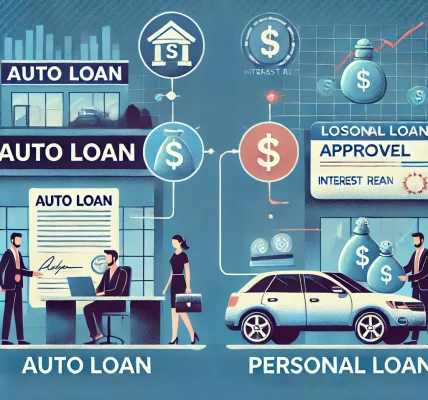Introduction
Starting and growing a small business requires significant financial investment. Whether you need capital for expansion, inventory, or day-to-day operations, choosing the right business loan can make all the difference. In 2025, small entrepreneurs have access to a variety of business loans tailored to their needs.
In this article, we will explore the best business loans available for small entrepreneurs in 2025, their benefits, eligibility criteria, and how to choose the right one for your business.
Why Business Loans are Important for Small Entrepreneurs?
- Business Expansion – Helps in scaling up operations, opening new locations, or hiring staff.
- Cash Flow Management – Provides working capital to cover operational expenses.
- Inventory and Equipment Purchase – Enables the purchase of necessary supplies and tools.
- Technology Upgrades – Helps businesses stay competitive by investing in modern technology.
- Emergency Funds – Offers financial security during unexpected downturns.
Types of Business Loans for Small Entrepreneurs
1. Term Loans
- Offered by banks and financial institutions.
- Fixed loan amount with a predetermined repayment schedule.
- Suitable for long-term investments like business expansion.
2. Working Capital Loans
- Short-term loan for managing daily operational expenses.
- Ideal for businesses facing seasonal fluctuations in revenue.
3. Government-Sponsored Loans
- Loans backed by government schemes to support small businesses.
- Often come with lower interest rates and relaxed eligibility criteria.
4. Equipment Financing
- Specifically designed for purchasing machinery, tools, or equipment.
- The equipment itself serves as collateral for the loan.
5. Invoice Financing
- Allows businesses to borrow money against unpaid invoices.
- Helps in maintaining cash flow while waiting for client payments.
6. Business Line of Credit
- A flexible loan that allows businesses to withdraw funds as needed.
- Interest is charged only on the amount used, making it a cost-effective option.
7. Microloans
- Small loans typically offered by non-profit organizations and microfinance institutions.
- Ideal for startups and small entrepreneurs who need minimal capital.
8. Merchant Cash Advances
- A lump sum loan repaid through a percentage of daily credit/debit card sales.
- Best for businesses with strong daily sales but inconsistent revenue flow.
9. Franchise Loans
- Designed for entrepreneurs looking to buy into a franchise business.
- Covers startup costs, franchise fees, and operational expenses.
Top Business Loans for Small Entrepreneurs in 2025
(Note: These are hypothetical examples; always verify with lenders before applying.)
- ABC Small Business Loan – Offers competitive interest rates with flexible repayment terms.
- XYZ Working Capital Loan – Best for businesses needing short-term financial support.
- PQR Government-Backed Loan – Low-interest loan with easy eligibility for startups.
- DEF Equipment Financing – Covers up to 90% of equipment purchase costs.
- GHI Microloan Program – Tailored for entrepreneurs needing funding under $50,000.
Factors to Consider When Choosing a Business Loan
1. Loan Amount & Purpose
- Assess how much funding your business needs and what it will be used for.
- Choose a loan type that aligns with your business goals.
2. Interest Rates & Fees
- Compare interest rates across different lenders.
- Watch out for additional fees like processing charges and prepayment penalties.
3. Repayment Terms
- Select a repayment term that suits your business cash flow.
- Shorter terms may have higher monthly payments but lower overall interest costs.
4. Eligibility Criteria
- Check minimum revenue, credit score, and business age requirements before applying.
5. Loan Approval & Disbursement Time
- Some loans offer quick approvals, while others take weeks for processing.
- If you need urgent funds, look for lenders with fast disbursement policies.
6. Collateral Requirements
- Some loans require assets as security, while others offer unsecured options.
- Choose based on your ability to provide collateral.
7. Lender Reputation & Customer Support
- Read reviews and check the lender’s track record before applying.
- Ensure they offer reliable customer service in case of future issues.
How to Apply for a Business Loan?
Step 1: Assess Your Financial Needs
Determine how much capital you need and why you need the loan.
Step 2: Check Eligibility
Review the lender’s requirements, including credit score, revenue, and business history.
Step 3: Compare Loan Options
Use online loan comparison tools to evaluate interest rates, terms, and benefits.
Step 4: Gather Required Documents
- Business registration documents
- Financial statements and tax returns
- Bank statements and credit reports
- Business plan (for some loans)
Step 5: Submit Your Application
Apply online or visit the lender’s branch with necessary documents.
Step 6: Review Loan Offer & Sign Agreement
Read the terms carefully before accepting the loan.
Step 7: Receive Funds & Utilize Wisely
Once approved, the funds are disbursed to your business account.
Conclusion
Securing the right business loan can provide the necessary financial support to help small entrepreneurs grow their ventures. By understanding different loan types, comparing lenders, and carefully assessing repayment terms, you can make an informed decision that best suits your business needs.
Whether you need capital for expansion, equipment, or working capital, choosing the right loan in 2025 will set your business on the path to success.
Disclaimer:
This article is for informational purposes only and does not constitute financial advice. Loan terms, interest rates, and eligibility criteria vary by lender. Always consult a financial advisor or loan specialist before making any financial decisions.




